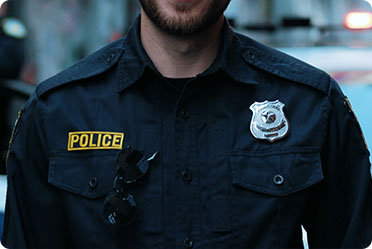
The common conception about judges is that they will always believe the word of a police officer. Officers seem to have built-in credibility as they take the stand. Throughout my many years of practice, I have come across credible police officers who do a good job of policing, credible police officers who do a poor job of policing, and flat-out liars. Unfortunately, the vast majority of judges tend to give incompetent or lying officers free passes by convicting a defendant when an officer is simply unbelievable.
When it comes to lying police officers, a jury will often sniff out the lies and reject the testimony. That is one of the great elements of our criminal justice system. Yet, there are certain cases that do not require a jury to decide guilt, because the Pennsylvania and U.S. Constitutions do not mandate jury trials when the maximum time in jail can be, at most, six months. In these cases, a judge acts as the decider of law and fact. People accused of crimes in these instances become understandably concerned about one person acting as the judge and jury.
Every DUI case in Philadelphia goes, at first, before a judge in the municipal court, rather than before a jury. Some second offense DUI cases and all third offense cases can later be appealed to the court of common pleas, where the case can be heard before a jury. However, valuable financial resources and time are spent at trial in the municipal court prior to the appeal.
So, both defense attorneys and their clients hope that the judge hearing the case in the municipal court will be fair and impartial, not just someone who will rubberstamp a conviction. Fortunately, I had a recent trial in the Philadelphia Municipal Court where the judge was not just a rubberstamp.
In this case, my client had the courage to reject the government’s plea offer and take the case to trial. There were many factors in his favor concerning both the roadside investigation and breath testing. We had planned an attack on the government’s case that involved six separate areas. One of those areas concerned what seemed to be pure exaggeration on the arresting officer’s part.
This officer claimed that he followed my client through a busy college campus for approximately ten city blocks and observed over 20 separate, dangerous motor vehicle violations. It was not until this officer reached the edge of his jurisdiction when he decided to pull over my client. Almost immediately, the officer made an arrest for DUI, without conducting any real investigation.
At trial, I was prepared to test the credibility of the officer’s allegations concerning the so-called motor vehicle violations. I was convinced that the right judge would see that an officer, who is supposed to be concerned about public safety, would have stopped my client much sooner than this officer did, if the violations actually happened. Fortunately, for my client, we had an impartial judge hear the case.
During the cross-examination, the officer changed his testimony numerous times. He appeared to be making it up as he went. My impression was that he was trying to get a conviction, instead of telling the truth. Low and behold, the judge agreed with this argument and found that the officer was not a credible witness. Ultimately, the prosecutor dismissed the charge.
My client, who is a productive member of society, got the right result. Just as important, a judge did the right thing by telling a police officer that justice is not served when the truth is not told. This judge showed that the criminal justice system can work even when a judge acts as the jury.
Leckerman Law focuses on safeguarding the
rights of individuals charged with DUI, DWI, DAI, and
other alcohol-related criminal offenses - Call Us Now For
NJ DWI (856) 429-2323 | For PA DUI (215) 496-9292